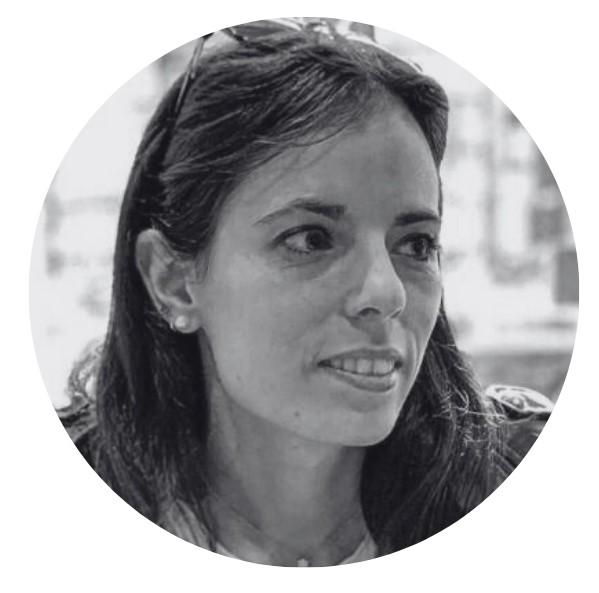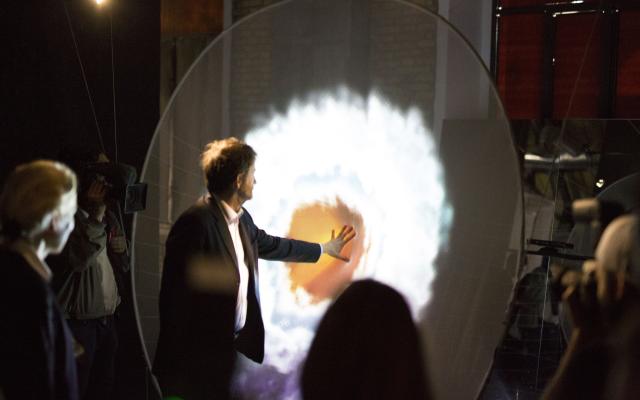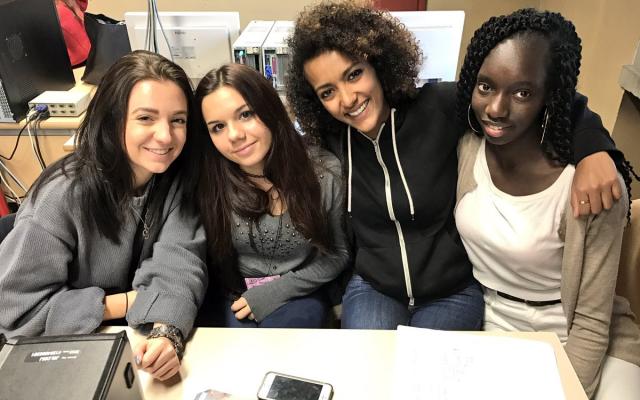The Coding Girls from the province of Manica meet ‘Tata Bra’
Pursuing your dreams requires courage, determination and the ability to never give up, even when the path ahead is uncertain. But no one can really do it alone. Sometimes we need someone to show us the way, to encourage us not to give up, to make us believe that our dreams are possible. These people are not always close by: we often have to learn to look for them, recognise them, or even just let ourselves be inspired by a story or a testimony. It was in this spirit that a special meeting was held on Wednesday 16 April as part of the Coding Girls in Mozambique programme, aimed at a class of twenty young female students from the province of Manica. It was an inspirational role-modelling event featuring an extraordinary woman: Berekti Berehane, better known as ‘Bra’.
Bra is originally from Asmara, the capital of Eritrea, a city with a unique charm, known for its modernist architecture and once called ‘Little Rome’ because of the Italian influence visible in its buildings, tree-lined avenues and Art Nouveau cafés. Today, Bra is around sixty years old, an age she herself describes with uncertainty, as birth records were not accurate at the time of her birth. She lives in Milan and is married to the coach of the women's football team she founded years ago, a team she captained until last year and of which she is now a manager. Mother of two children, Bra is a role model for many girls, not only on the playing field, but also and above all in life.
Her story of strength and determination, recounted in the book ‘Tata Bra’ and shared during the meeting, kept the girls glued to the screen with contagious attention. The story was so emotionally charged that it was decided to divide it into ‘episodes’ during the meeting, interspersing the narration with questions from the students, who were eager to learn more.
Bra shared her story with them: growing up in a difficult context, marked by the complexity of the civil war between Ethiopia and Eritrea, but also by a deeply rich and proud culture, she told the students about the moment when, at almost eighteen years of age, she made a decision in less than two hours that would change her life: to leave. ‘Berekti had never given up her dream of leaving Eritrea. She had written to her aunt in Italy to ask if she could go and stay with her and had received a positive reply. Until then, it had seemed impossible: she had never thought she could escape on foot [...]’. She did so in the company of Mangstab, a deserter who had hidden in their house the day before their departure and who agreed to undertake this journey with Bra only in exchange for a significant financial reward. They left Asmara secretly, in silence, heading for Sudan, a destination that would allow Bra, after a long year and a half, to reach Italy, where her aunt was waiting for her. ‘They spent days in the desert, without water and with little food. The journey seemed endless. Fatigue and weakness accumulated, they always walked at night to avoid the scorching heat of the day and possible ambushes by Ethiopian soldiers and Bedouins, dangerous and very violent raiders [...]’.
Bra's story deeply touched the Mozambican girls who, after introducing themselves one by one, felt the need to thank her and open up in turn, sharing personal experiences of hardship, loss and pain, but also of hope, strength and desire for redemption: like Bra, they too are pursuing a dream and, like Bra, they have shown in just these two hours together that they have the courage to pursue it. This meeting was not only a testimony to courage and determination, but also a moment of deep connection between cultures and generations, reminding us all how essential it is to have people around us who show us the way when we need it and, above all, how powerful it is, when these people are not there, to learn to become a point of reference for ourselves and for others.
‘At Linate airport, she took the bus and after about an hour's journey, she continued on foot. Berekti immediately recognised the house of her aunt, who had described it so well in her letter. What a thrill, after so much hard work, to have arrived where she had dreamed of being. [...].
Thus ended one story and another began; a whole new story to live and yet to be told.’

Edited by Elisabetta Gramatica, project officer




